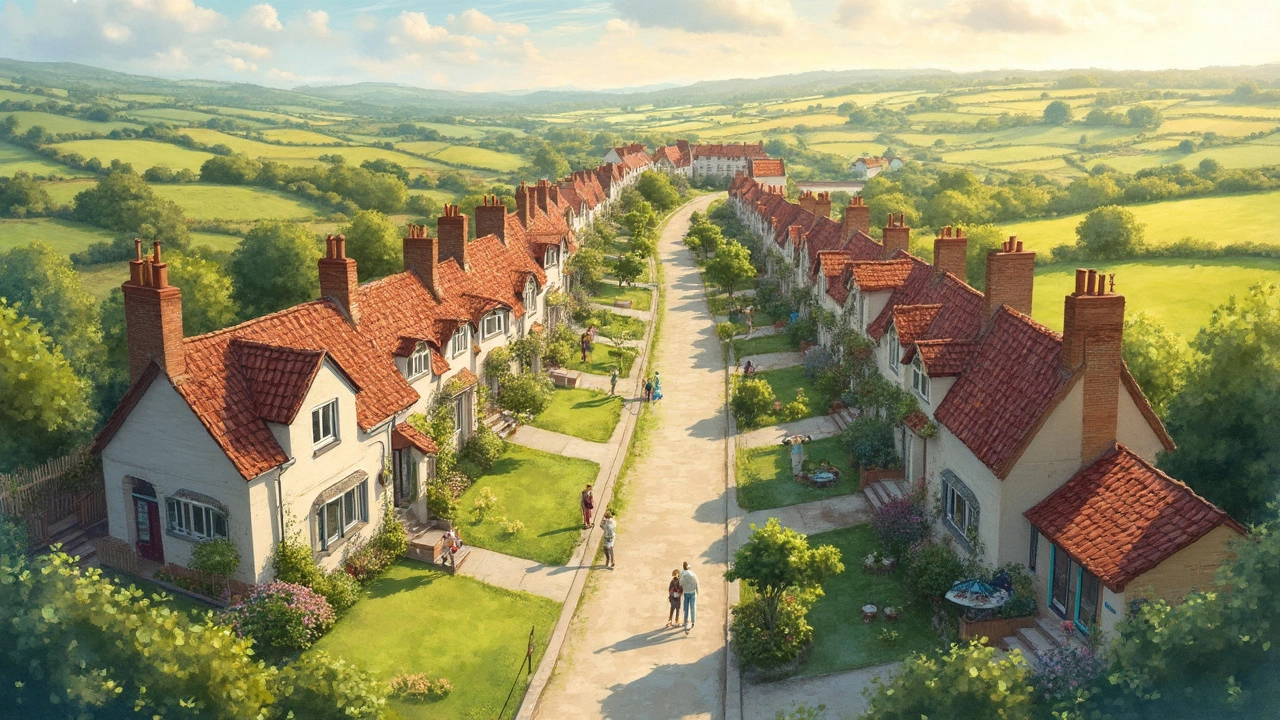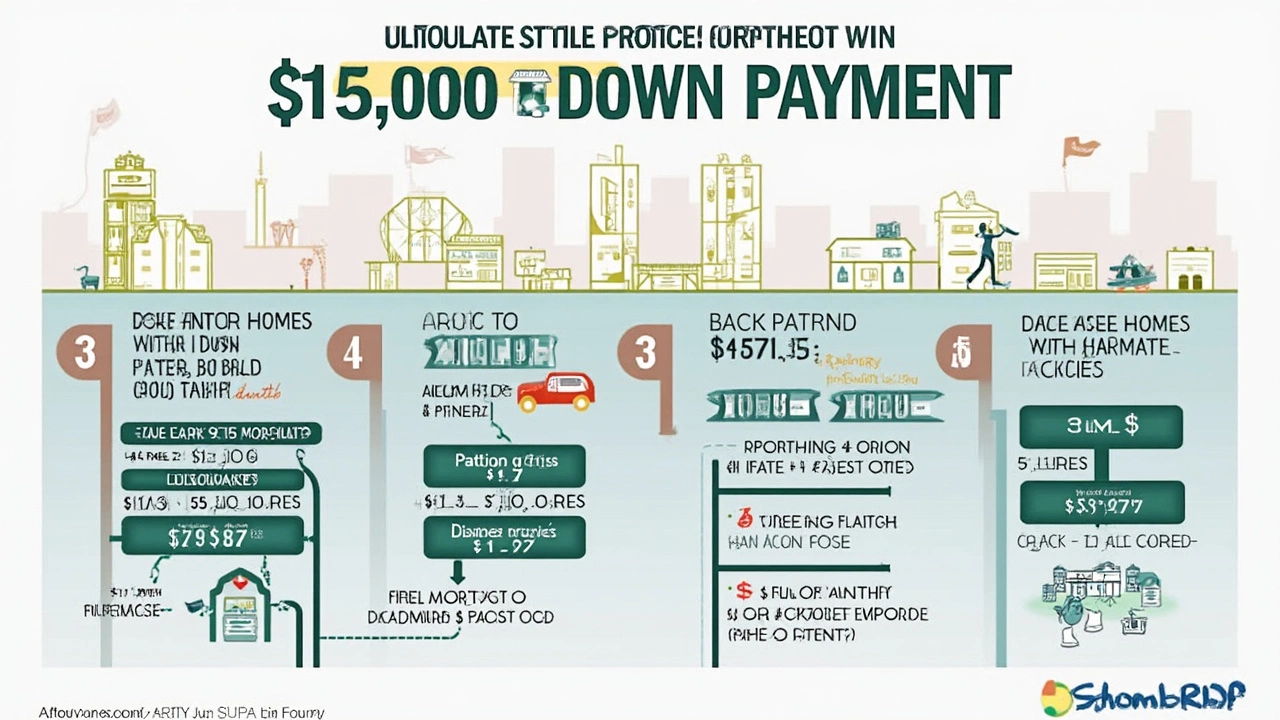House Affordability: Simple Ways to Buy Your Home Without Breaking the Bank
Feeling like a house is out of reach? You’re not alone. Many first‑time buyers think they need a huge deposit and a perfect credit score before they even look at listings. The truth is, there are several low‑cost paths to homeownership that most people overlook. Below you’ll find straight‑forward tips you can start using today, whether you’re eyeing a £100k starter home or a shared‑ownership flat.
Know Your Down‑Payment Options
Most buyers assume they must put down at least 10% of the purchase price. In reality, the minimum can be as low as 5% for many mortgages, and some government schemes let you pay even less. For example, the Help to Buy equity loan in the UK covers up to 20% of the price for new builds, meaning you only need 5% cash up front. If you qualify for a shared ownership deal, you might buy just a share of the property (often 25‑75%) and rent the rest. Your deposit then applies only to the share you own, dramatically cutting the cash you need.
Don’t forget to explore local down‑payment assistance programs. Many councils offer grants or interest‑free loans to help with the first slice of equity. These funds usually don’t need to be repaid until you sell the home, so they’re a low‑risk way to boost your buying power.
Smart Ways to Stretch Your Budget
Beyond the deposit, look at the whole cost of owning a house. A lower‑interest mortgage can save you thousands over the loan term. Shop around, use comparison tools, and consider fixing your rate for the first few years if you expect rates to rise.
Rent‑to‑buy schemes are another hidden gem. You pay a slightly higher rent while the landlord saves a portion of that rent as a future deposit for you. At the end of the agreed period, you get the first right to purchase the property. This can give you time to improve your credit score or save more money.
Finally, tighten up your monthly budget. Track every expense for a month and cut the non‑essentials – that extra coffee, subscription services, or pricey gym membership. Redirect those funds into a dedicated house‑saving account. Even a modest £100 extra each month adds up to over £12,000 in five years, which could be the extra slice of equity you need.
Remember, house affordability isn’t a single number; it’s a mix of deposit, mortgage terms, and ongoing costs. By using low‑deposit schemes, checking out shared‑ownership options, and tightening your budget, you can turn the dream of owning a home into a realistic goal. Start with one small step today, and watch your path to homeownership become clearer and more affordable.

Can I Afford a House on 40k a Year?
Wondering if you can afford a house on a 40k salary? It's a tough question, but not impossible! With the right strategies, saving techniques, and an awareness of affordable markets, you can still make your dream of homeownership a reality. Dive into real-life budgeting tips, low-cost areas you hadn't considered, and the assistance programs available to help make your home-buying journey smoother.

Can You Afford a $700K House on a $100K Salary?
Wondering if a $100K salary can get you a $700K house? Explore the factors that influence home affordability, from mortgage rates to down payments. Understand the tricks of managing expenses and improving credit, while considering cost-cutting alternatives for first-time buyers. Make informed decisions and achieve your dream home ownership.

How Much House Can I Afford on a $36K Salary?
Thinking of buying your first home on a $36,000 yearly income? This guide breaks down how much house you can realistically afford, considering your monthly expenses and budgeting smartly. Learn about essential factors like the ideal mortgage rule of thumb and how debt-to-income ratios affect your buying power. Plus, get tips on managing finances for future homebuyers facing financial constraints.

How Much House Can I Afford with $10,000 Down?
Navigating the first step into home ownership might seem intimidating, but understanding what you can afford with a $10,000 down payment is essential. This article provides practical guidance on calculating your affordability, considering mortgage types, and smart financial planning. Explore how your job and location affect your buying power and discover tips to boost your housing budget. Gain practical insights into making home ownership a reality without feeling overwhelmed.

Is $50,000 a Year Enough to Buy a House?
Wondering if earning $50,000 a year can get you a house? It might be possible, especially in areas where real estate is more affordable. Understanding local markets, managing your budget smartly, and exploring government assistance programs are essential steps. Let's explore some surprising places where you could turn that dream into a reality even on a modest income.

First-Time Homebuyer Guide: Affording a House on a $70,000 Salary
Navigating the home buying landscape can be daunting, especially when you're trying to figure out how much house you can afford on a $70,000 annual salary. This guide delves into understanding your budget, explores key financial considerations, and offers practical tips to help you make a wise investment. It's essential to assess living expenses, debts, and potential mortgage rates to ensure financial security in your new home purchase.